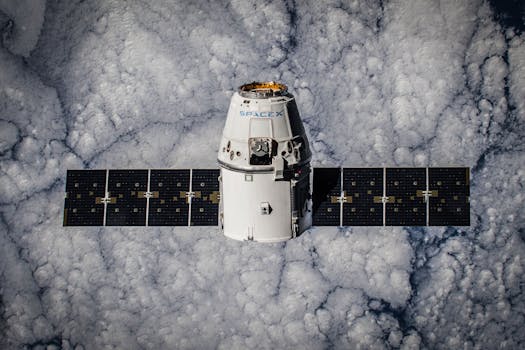
The Future of Satellites: Revolutionizing Global Communication and Exploration. The future of satellites is a topic of great interest and importance, as these orbiting devices continue to play a vital role in our daily lives. From facilitating global communication and navigation to enabling scientific research and exploration, satellites have become an essential part of our modern world. In this article, we will delve into the current state of satellite technology, explore the latest trends and advancements, and examine the potential future developments that will shape the industry.
Satellites have come a long way since the launch of the first artificial satellite, Sputnik, in 1957. Today, there are thousands of satellites in orbit around the Earth, performing a wide range of functions, including communication, navigation, weather forecasting, and Earth observation. The rapid growth of the satellite industry has been driven by advancements in technology, which have made it possible to build smaller, more efficient, and more cost-effective satellites. One of the key trends in the satellite industry is the development of small satellites, also known as CubeSats. These tiny satellites, which are typically around the size of a shoebox, have become increasingly popular in recent years due to their low cost and versatility.
Another significant trend in the satellite industry is the rise of satellite constellations. These constellations, which consist of multiple satellites working together to provide global coverage, have the potential to revolutionize the way we communicate and access data. Companies such as SpaceX, Amazon, and OneWeb are already working on deploying their own satellite constellations, which will provide high-speed internet access to remote and underserved communities around the world. In addition to their potential to bridge the digital divide, satellite constellations also have the potential to enable new technologies, such as the Internet of Things (IoT) and 5G networks.
In terms of future developments, one of the most exciting areas of research is the development of satellite-based quantum communication. This technology, which uses satellites to transmit secure quantum keys, has the potential to enable secure communication over long distances. Another area of research is the development of satellite-based solar power systems, which could provide a clean and sustainable source of energy for future space missions. As the satellite industry continues to evolve, it is likely that we will see new and innovative applications of satellite technology, from satellite-based Earth observation to satellite-enabled autonomous systems.
The future of satellites is not without its challenges, however. One of the major concerns is the growing problem of space debris, which poses a significant threat to the safety and sustainability of satellite operations. To address this issue, there is a need for more effective debris removal technologies and more sustainable practices in the design and operation of satellites. Another challenge facing the satellite industry is the need for more effective regulation and governance, particularly in areas such as spectrum allocation and orbital slot assignment.
Despite these challenges, the future of satellites looks bright. With ongoing advancements in technology and innovation, it is likely that satellites will continue to play an essential role in our daily lives, from enabling global communication and navigation to facilitating scientific research and exploration. As we look to the future, it is exciting to think about the new opportunities and challenges that satellites will bring, and how they will continue to shape our world and our understanding of the universe.
The potential applications of satellite technology are vast and varied, and it is likely that we will see new and innovative uses of satellites in the future. From satellite-based agriculture to satellite-enabled disaster response, the possibilities are endless. As the satellite industry continues to grow and evolve, it is essential that we prioritize sustainability, regulation, and innovation, to ensure that satellites continue to benefit humanity and the environment.
In conclusion, the future of satellites is a topic of great importance and interest, with significant implications for global communication, exploration, and scientific research. As we look to the future, it is essential that we continue to invest in satellite technology and innovation, to address the challenges and opportunities that lie ahead. With their potential to enable global connectivity, facilitate scientific discovery, and drive economic growth, satellites will undoubtedly remain a vital part of our modern world for years to come.




